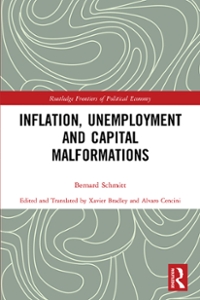Question
Data from the homepage of the Bureau of Economic Analysis (www.bea.gov) of quarterly data for U.S. real GDP from the following fourrecessions: 1981-1982, 1990-1991, 2001,
Data from the homepage of the Bureau of Economic Analysis (www.bea.gov) of quarterly data for U.S. real GDP from the following fourrecessions: 1981-1982, 1990-1991, 2001, 2007-2009 are given below.
Year/quarterGDP (billions of 2009 dollars)Growth rate from preceding quarter1981-1982 recession1981q16,635.71981q26,587.3-0.8%1981q36,662.91.3%1981q46,585.1-1.3%1982q16,475.0-1.8%1982q26,510.20.6%1982q36,486.8-0.4%1982q46,493.10.1%1990-1991 recession1990q28,981.71990q38,983.90.0%1990q48,907.4-0.9%1991q18,865.6-0.5%2001 recession2000q412,679.32001q112,643.3-0.3%2001q212,710.30.6%2001q312,670.1-0.3%2001q412,705.30.3%2007-2009 recession2007q414,991.82008q114,889.5-0.8%2008q214,963.40.5%2008q314,891.6-0.5%2008q414,577.0-2.3%2009q114,375.0-1.5%2009q214,355.6-0.1%
Instruction:Enter your responses as whole numbers.
a.How many quarters of negative real GDP growth occurred in each recession?
1981-1982:quarters.
1990-1991:quarters.
2001:quarters.
2007-2009:quarters
b.Which, if any, of these recessions satisfied the informal criterion that a recession must have two consecutive quarters of negative GDP growth?
(Click to select)1981-1982 and 1990-19911981-1982, 1990-1991, 2001, and 2007-20091981-1982, 1990-1991, and 2007-20091990-1991 and 2007-20091981-1982 and 2001.
Step by Step Solution
There are 3 Steps involved in it
Step: 1

Get Instant Access to Expert-Tailored Solutions
See step-by-step solutions with expert insights and AI powered tools for academic success
Step: 2

Step: 3

Ace Your Homework with AI
Get the answers you need in no time with our AI-driven, step-by-step assistance
Get Started


